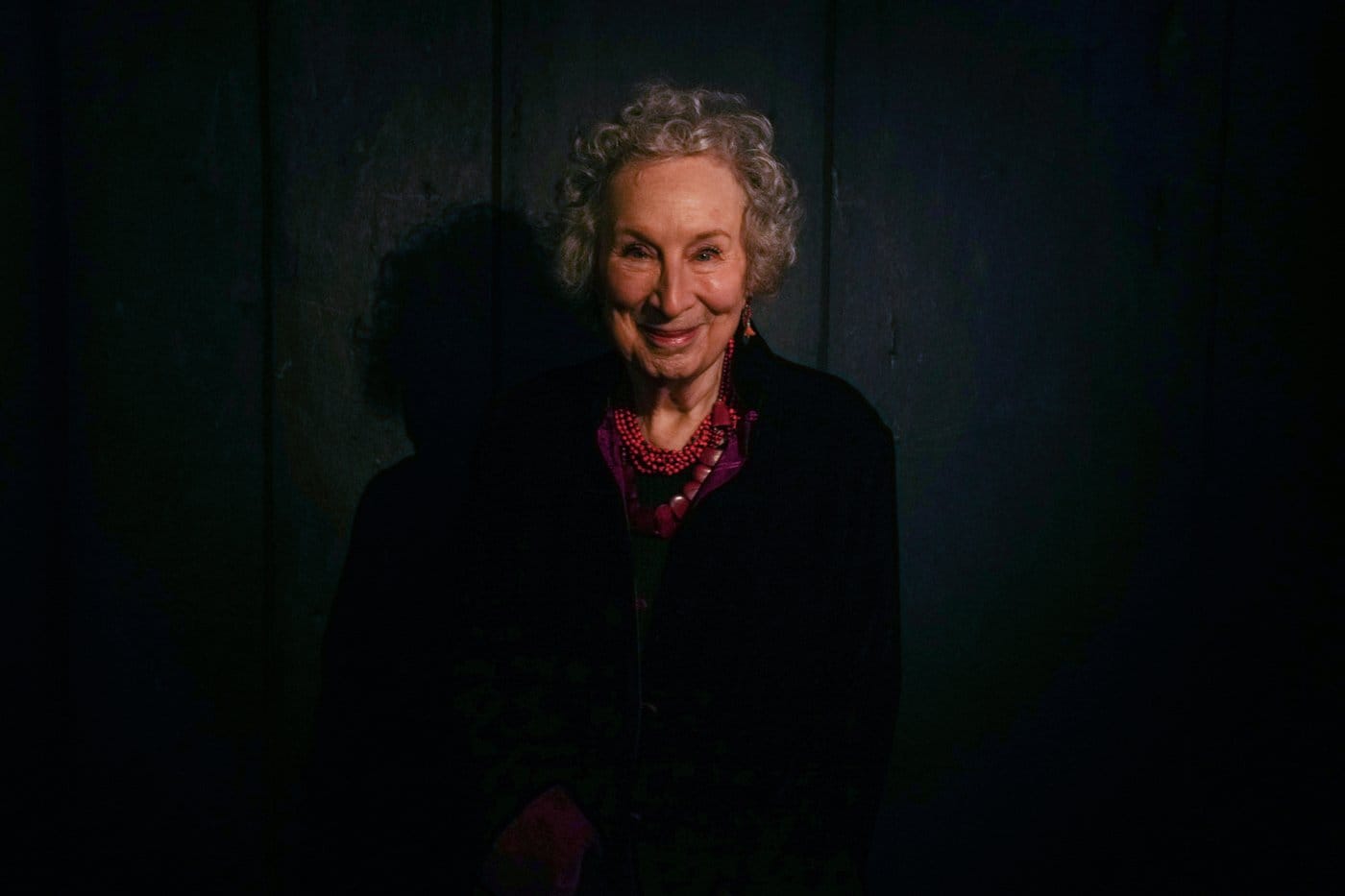"No yellow brick road": Atwood comments on the US election during a conference in Calgary
She insisted, “Everything in the book has either happened or was happening somewhere, sometime. Otherwise, people would say, ‘She’s really weird.’”

Margaret Atwood has often been praised for her foresight, especially regarding her renowned 1985 dystopian novel The Handmaid’s Tale, which has become eerily relevant amid the rollback of reproductive rights in the U.S.
However, the acclaimed Canadian author admitted that her predictive abilities fell short regarding last week’s U.S. election, which saw Donald Trump securing another term in the White House.
"I searched. I invoked, ‘Oh God, let it be sun.’ But it was darkness all around,” Atwood quipped, drawing laughter from a packed audience of over 2,500 at Calgary’s Southern Alberta Jubilee Auditorium on Tuesday night.
The event was organized by the Alberta Teachers’ Association in collaboration with Calgary Catholic Local 55 and Calgary Public Local 38. Atwood’s talk centered on themes of democracy, public education, and the common good. She is scheduled to continue her speaking engagements in Edmonton on Wednesday, where she will discuss “the importance of freedom of expression” at an event hosted by the Edmonton Public Library.
During her talk, Atwood expressed caution about making sweeping generalizations regarding the motivations of American voters, pointing out that the country’s regions have distinct histories and mindsets. “You have to get your mind around how other people think,” she said. “I think some people would shoot themselves rather than having a woman leader.” Yet, she added that Americans are less polarized than commonly perceived.
Atwood likened the recent presidential election to a "multiple choice questionnaire with only two choices,” when in reality, many people possess a blend of differing values. Although the Republicans won the presidency, she noted that several states simultaneously passed ballot initiatives affirming abortion rights.
While Atwood missed the mark on forecasting the election’s result, she offered some insights into what might come next. “Watch what goes on inside the White House,” she advised, noting that Trump’s administration is populated by individuals with significant egos, backed by billionaires with their own agendas.
She speculated, “I think bookies are going to start making bets on how long Donald Trump will last. Is he really necessary for these billionaires anymore? On the other hand, are they necessary for him? Who shall win?”
She also predicted that discussions about class would intensify, saying, “You’re going to hear a lot more talk about class than we’ve been having since the 1940s.”
Reflecting on the 2022 Supreme Court decision to overturn Roe v. Wade, which ended nearly 50 years of federally protected abortion rights, Atwood had previously written in The Atlantic that she never intended for Gilead—the oppressive society depicted in The Handmaid’s Tale—to become a reality.
The novel, adapted into a popular Hulu series starring Elisabeth Moss, is set in a near-future United States controlled by religious extremists and plagued by environmental crises and declining birth rates.
In Gilead, women are treated as property, with some forced into servitude as “handmaids” whose only role is to bear children for wealthy, infertile couples. The handmaids are recognizable by their red robes and white bonnets, which obscure their peripheral vision.
During the forum, Atwood emphasized that her ideas for The Handmaid’s Tale were not purely fictional but rather inspired by conversations among religious conservatives. “Not the outfits, but the core principles,” she remarked with a touch of humor.
She insisted, “Everything in the book has either happened or was happening somewhere, sometime. Otherwise, people would say, ‘She’s really weird.’”
When asked by the moderator if people should be afraid given the current political climate, Atwood responded, “I don’t think we should be afraid at all, by which I don’t mean that there isn’t something horrible happening. I mean that fear makes you feeble.”
The discussion also touched on the famous quote by Martin Luther King Jr.: “The arc of the moral universe is long, but it bends toward justice.” Atwood warned against complacency, countering, “This is what makes people give up on vigilance—‘It’s all going to be fine, I don’t have to do anything because it’s bending toward justice all on its own.’”
“That’s not real,” she concluded. “There is no yellow brick road.”





